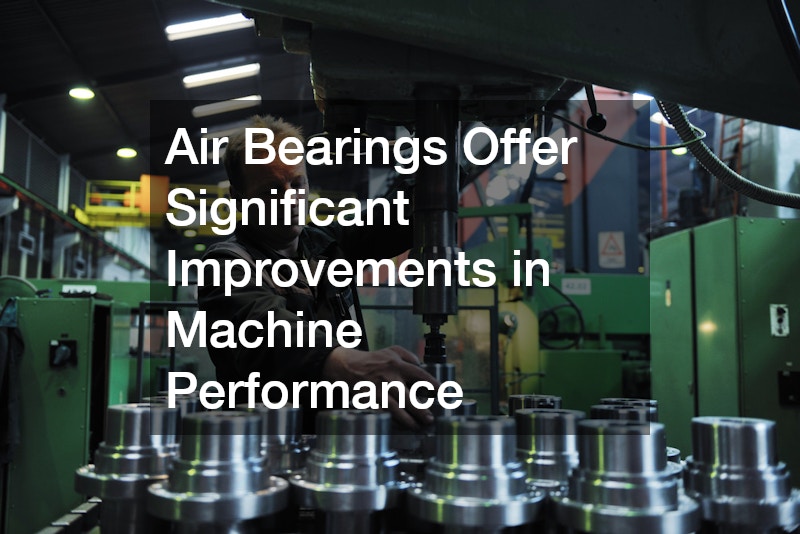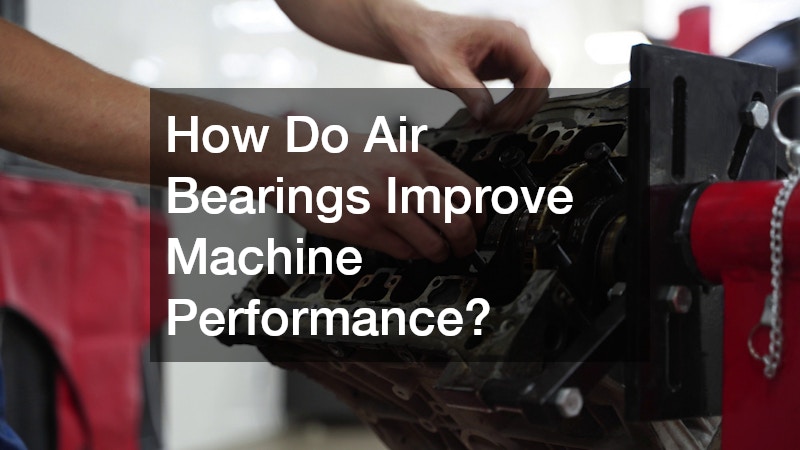
This article explores the benefits of using air bearings in various machine operations, focusing on their impact on performance. We delve into the most commonly asked questions about air bearings, discussing their unique properties and how they compare to traditional bearing systems.
What Are the Advantages of Air Bearings Over Traditional Bearings?
Reduced Friction
Air bearings are known for minimizing friction because they facilitate non-contact operation through a thin film of pressurized air. This drastically reduces the heat and wear typically associated with traditional bearings.
The elimination of metal-to-metal contact means that machines operate more smoothly and efficiently. Compared to traditional bearings, air bearings can significantly enhance the performance of precision instruments.
This reduced friction also translates to less energy being required to drive machine components, thus improving the overall energy efficiency. Air bearings thus offer both technical benefits and operational cost savings.
Enhanced Precision and Accuracy
The precision and accuracy of machines can be greatly enhanced by using air bearings because they eliminate mechanical contact and its associated inconsistencies. This is particularly important in industries where minute deviations can result in significant issues.
Machines that depend on high precision, such as CNC tools and semiconductor manufacturing equipment, greatly benefit from the high stability provided by air bearings. These systems can operate at higher speeds without loss of accuracy thanks to the minimal friction involved.
Enhanced precision also contributes to increased productivity and the quality of produced components. Consequently, air bearings are an essential component in sectors that prioritize performance and quality.
How Do Air Bearings Contribute to Increased Machine Lifespan?
Lower Wear and Tear
The non-contact nature of air bearings results in substantially less wear and tear on machinery. This is a primary factor in why machines equipped with air bearings tend to have a longer service life.
By reducing the physical contact between moving parts, air bearings substantially decrease the degradation typically seen in traditional bearings. This leads to lower maintenance needs and fewer replacements over time.
This non-contact operation also mitigates the need for frequent lubricants, which further reduces operational costs and environmental impact. In the long run, air bearings contribute to both sustainable practices and operational efficiency.
Improved Load Capacity
Air bearings are also capable of supporting higher loads, allowing machines to operate under more demanding conditions without compromising performance. This ability arises from their unique design, which distributes loads more evenly across the surface.
This even load distribution not only enhances the operational capacity of machinery but also prevents localized stress, which is a common source of wear in traditional bearing systems. Thus, machines equipped with air bearings can perform more robustly over their lifespan.
The enhanced load capacity ensures that even under heavy operational demands, air bearings maintain their performance and efficiency. This factor is crucial for industries looking to maximize productivity while minimizing equipment downtime.
What Are The Economic Implications Of Using Air Bearings?
Cost Savings in Maintenance
Air bearings significantly reduce maintenance costs because they require fewer replacements and repairs compared to traditional bearings. This durability and reliability result from the minimal wear and tear experienced by machines with air bearings.
With fewer mechanical failures, companies can save on both parts and labor costs over time. Businesses can therefore allocate their budgets more effectively, redirecting resources to other critical areas.
In addition to the direct cost savings, the reduced need for maintenance also leads to fewer disruptions in production, which indirectly boosts the overall profitability. Thus, the economic benefits of air bearings extend beyond just maintenance expenses.
Operational Efficiency
The use of air bearings leads to significant operational efficiencies through energy savings and reduced machine downtime. Because air bearings help reduce friction, machines use less power and energy resources during operation.
This improved efficiency translates to lower operational costs, allowing companies to achieve a more favorable bottom line. Furthermore, the reliability of air bearings means machines experience fewer unscheduled downtimes.
Downtime reductions further enhance productivity, allowing industries to optimize their output and revenues. The keyword ‘economic efficiency’ is particularly relevant here, as it encapsulates the broader financial advantages of adopting air bearings.
In summary, air bearings offer significant improvements in machine performance through reduced friction, precision, durability, and economic efficiency. These factors contribute not only to the better functioning of machines but also to their long-term cost-effectiveness.

